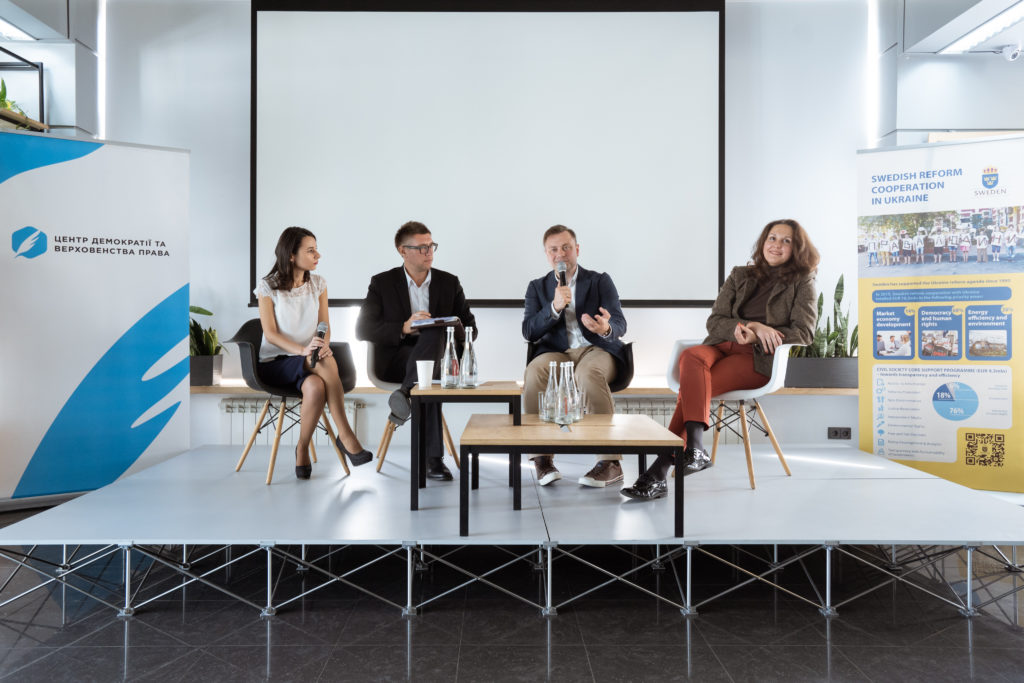 On September 28, the 7th Forum of Defenders of the Right to Information, organized by the Centre for Democracy and Rule of Law, took place in Kyiv. This Forum annually gathers activists of the Network of Defenders of the Right to Information, journalists, human rights defenders and officials to discuss important topics in this area and exchange experiences. This year, the main topic was the changes that have occurred in the area of access to information for the year and plans for the future.
On September 28, the 7th Forum of Defenders of the Right to Information, organized by the Centre for Democracy and Rule of Law, took place in Kyiv. This Forum annually gathers activists of the Network of Defenders of the Right to Information, journalists, human rights defenders and officials to discuss important topics in this area and exchange experiences. This year, the main topic was the changes that have occurred in the area of access to information for the year and plans for the future.
Vasily Romaniuk, Head of the National Programs of the Embassy of Sweden in Ukraine, thanked the participants of the Forum for their work and stated the importance of access to information in the development of the country. “Sweden has chosen access and transparency, and the result is a high level of democracy. It is openness of information that is the best tool against the corruption virus, because it serves as a guarantee that it will be very difficult to hide something,” he said
Svitlana Kolyshko, UNDP Human Rights Project Coordinator, noted that the right to know is one of the inalienable human rights and called for progress in this area.
“The ability to get information is important both for fighting corruption and for eliminating the shortcomings that exist in the state. Without this, it is difficult to talk about democracy, therefore it is impossible to relax attention in this area,” she said.
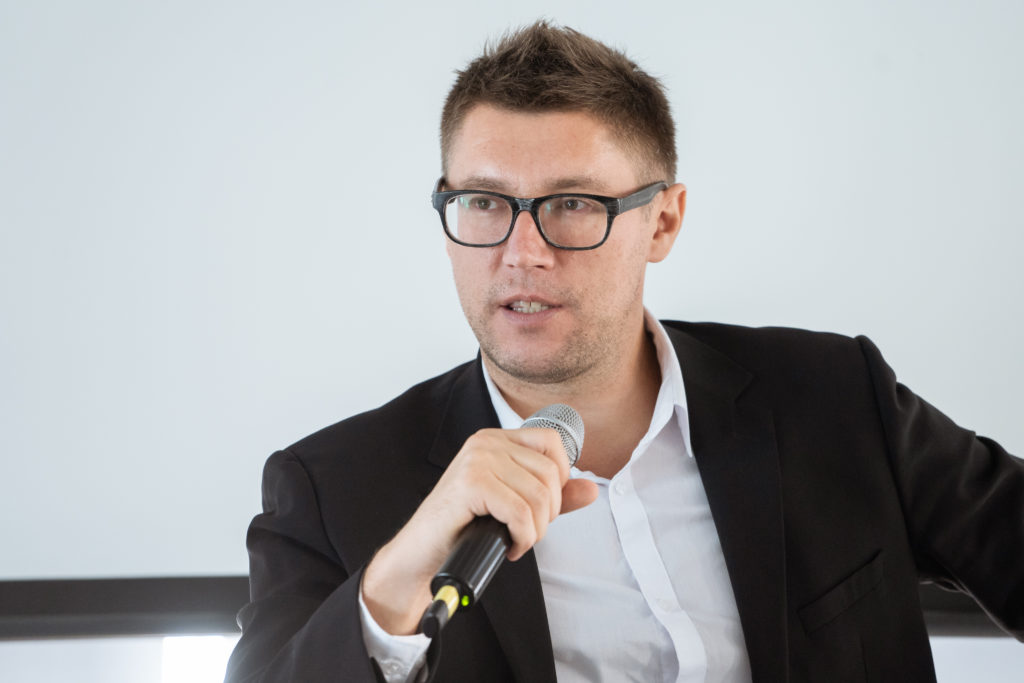 Taras Shevchenko, director of the Centre for Democracy and Rule of Law, stressed on the importance of access to information.
Taras Shevchenko, director of the Centre for Democracy and Rule of Law, stressed on the importance of access to information.
“For us, access is a topic in which we are focused on strategic achievements, rather than instant results. Therefore, we conduct a large number of training programs. The processes at the European Court of Human Rights are also strategic: the ECHR is considering three cases concerning access that we conduct. I am glad that the Network continues to work and unites the efforts of many people around a common cause,” said Taras Shevchenko.
Access to information: what has changed over the year
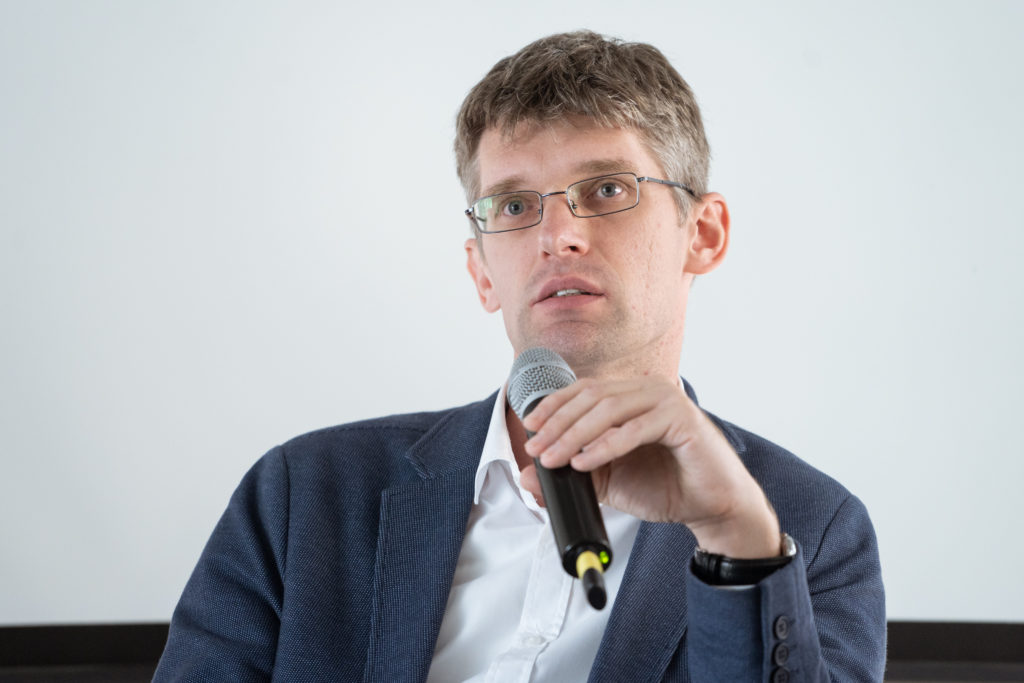 The first change in 2018 was a change in the office of the ombudsman, a body that deals with parliamentary control over the observance of the rights to public information. In particular, the reorganization of the office took place: departments for access to public information, citizens’ appeals and personal data protection were merged. Viktor Barvitskyi, representative of the Commissioner for the observance of information rights and representation in the Constitutional Court of Ukraine, spoke about the work of the department, which he heads.
The first change in 2018 was a change in the office of the ombudsman, a body that deals with parliamentary control over the observance of the rights to public information. In particular, the reorganization of the office took place: departments for access to public information, citizens’ appeals and personal data protection were merged. Viktor Barvitskyi, representative of the Commissioner for the observance of information rights and representation in the Constitutional Court of Ukraine, spoke about the work of the department, which he heads.
“We are continuing competitions for vacancies, creating new regional offices, and a competition for regional coordinators will also be held. The work continues, because we have a powerful tool for the restoration of violated rights. I would like to mention trainings for managers and monitoring, which give the office information on problematic issues in the field of access to public information,” said Viktor Barvinskyi.
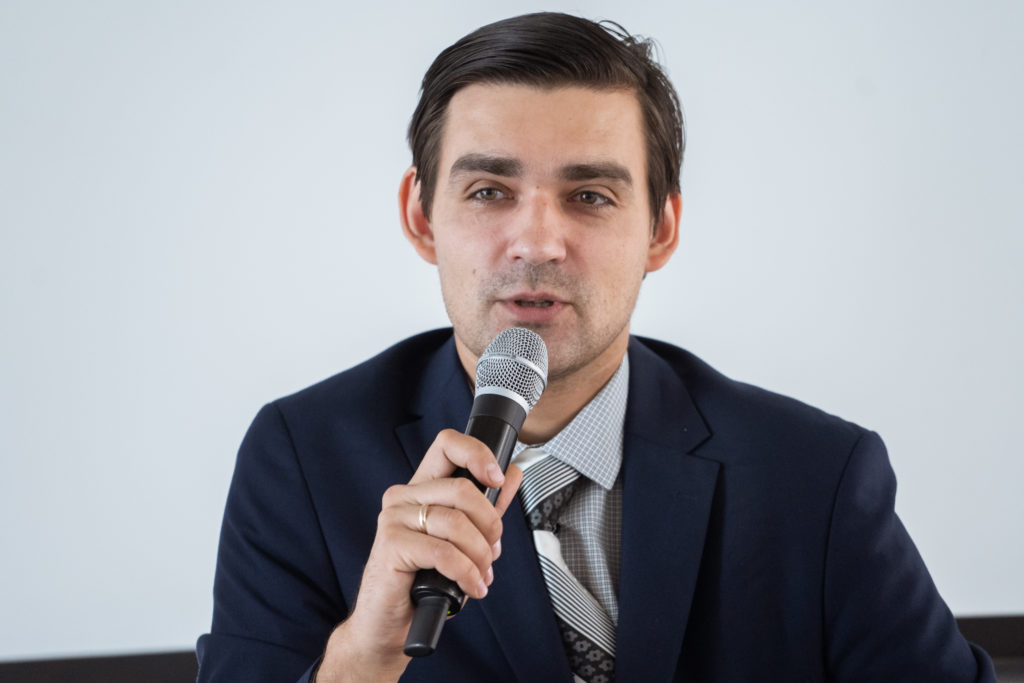 Another top event was the signing CoE Convention on Access to Official Documents, which sets minimal standards in this area. The Convention enters into force subject to ratification in ten countries. Ukraine had the chance to become this tenth country and launch the Convention, however, the Verkhovna Rada failed ratification. There is a chance to approve the document, but this is only possible at the next session, in February.
Another top event was the signing CoE Convention on Access to Official Documents, which sets minimal standards in this area. The Convention enters into force subject to ratification in ten countries. Ukraine had the chance to become this tenth country and launch the Convention, however, the Verkhovna Rada failed ratification. There is a chance to approve the document, but this is only possible at the next session, in February.
“In fact, the main provisions of the Convention are already taken into account in the Ukrainian Law On Access to Public Information. What it gives us the most is the creation of two international bodies: the Team of Specialists on Access to Official Documents and the Meeting of the Parties. Actually, this will mean the conclusion of the topic of access to the international level, the exchange of experience. We could even initiate changes to the Convention and make it better,” explained Ihor Rozkladai, a lawyer at CEDEM. On the other hand, the Tromso Convention is important for the promotion of Ukraine in the world – and this could strengthen the position of our diplomats in the Council of Europe.
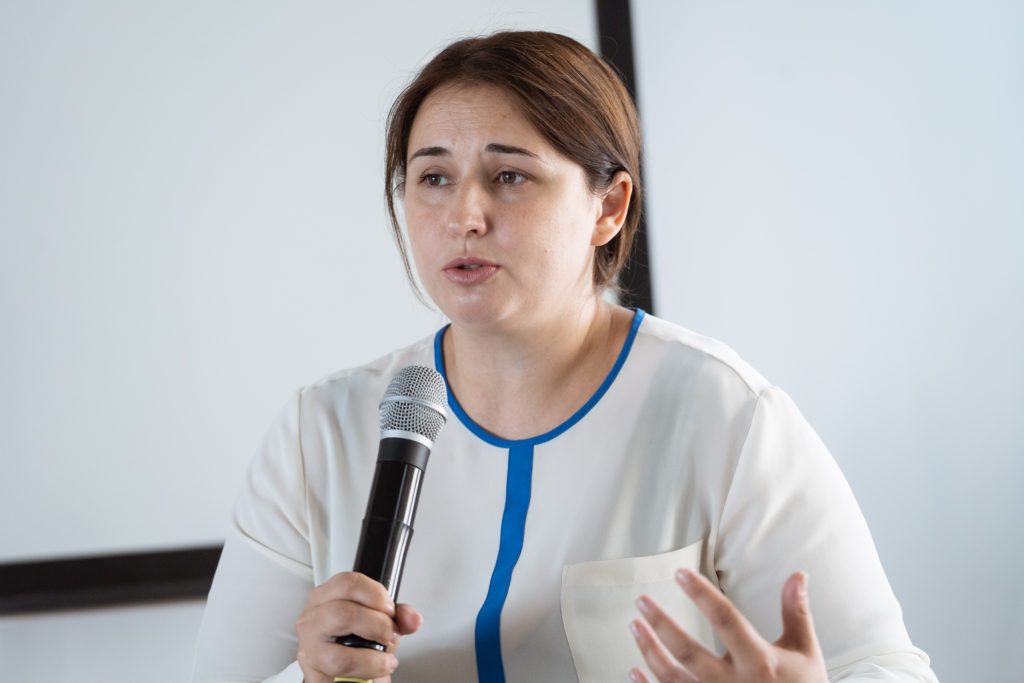 Oksana Nesterenko, media expert, NaUKMA professor, focused on challenges with regard to the access. According to her, it is now important to preserve the format of Ombudsman+, cooperation of the Office of the Commissioner and the public sector in the field of access. The expert proposes to consolidate cooperation in the document in order not to lose this tool.
Oksana Nesterenko, media expert, NaUKMA professor, focused on challenges with regard to the access. According to her, it is now important to preserve the format of Ombudsman+, cooperation of the Office of the Commissioner and the public sector in the field of access. The expert proposes to consolidate cooperation in the document in order not to lose this tool.
“With the adoption of the Resolution of the Supreme Court Plenum No. 10, the situation with the protection of the right of access to information in court improved significantly, however, given the judicial reform, a new challenge arises: how not to lose these achievements. The third problem is an excessively short time frame for bringing to administrative responsibility for illegal denials of access,” she said.
Oksana Nesterenko also noted the need to adopt a law on the protection of whistle-blower. She stressed that the work of whistle-blowers, which give a complete picture of the events around, is important for fully informing the public.
Access training for officials: results and achievements
Will citizens have proper access to information? The answer to this question depends primarily on the knowledge and quality of the officials who respond directly to access. Therefore, this year the Centre for Democracy and Rule of Law together with the office of the Ombudsman conducted a series of trainings for civil servants in all regions of Ukraine.
They were attended by 839 representatives of the executive and local authorities, as well as newly united territorial communities. The main topics of the lectures were work with requests and the use of a “three-pronged test” in case access to information is limited, as well as other work formats: creating places for people asking, published information in open data format, access to meetings.
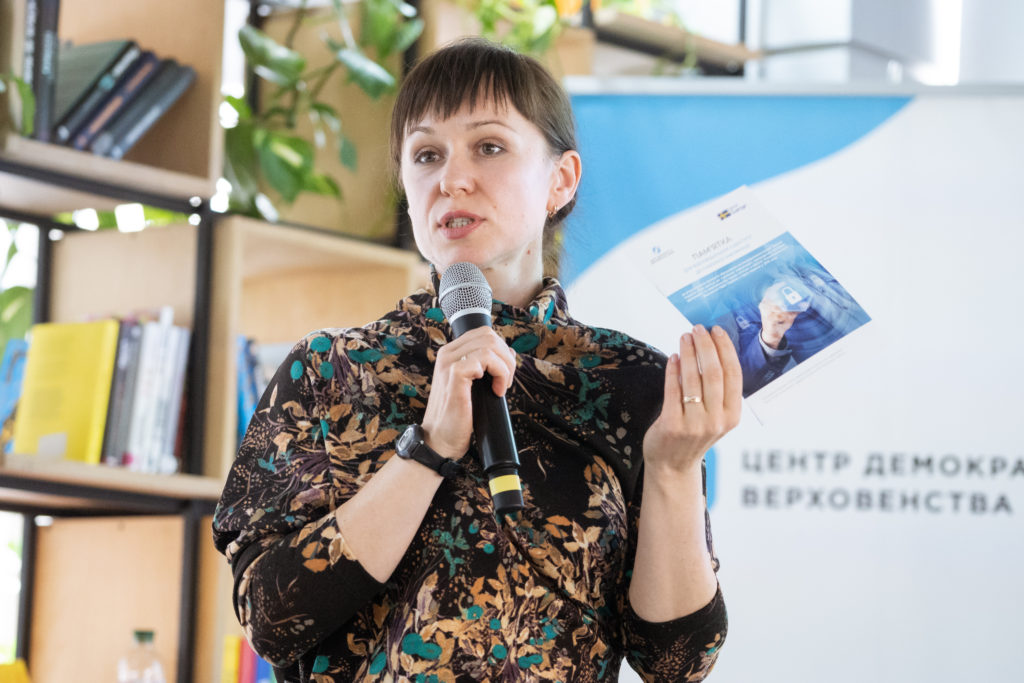 According to Oksana Ohdanska, a lawyer at CEDEM and a lecturer at trainings, during classes they focus on practical cases and the nuances of access to information, so they worked with tasks that arise daily in the work of officials.
According to Oksana Ohdanska, a lawyer at CEDEM and a lecturer at trainings, during classes they focus on practical cases and the nuances of access to information, so they worked with tasks that arise daily in the work of officials.
“We’ve focused on practical problems, rather than on stories, on how participants learned to make decisions independently. We also familiarized them with current court practice. Another goal was to familiarize officials with recommendations and sources so that they could teach colleagues, and thus, to convey the experience of those who have not been to the training,” she said.
 Maksym Petliovanyi, expert of the Ukrainian Institute of Human Rights, noted two tasks of the trainings. “We set a goal to establish a single standard of access throughout the country – this is first. And secondly, to understand what has changed in this area and identify problems,” the expert explained. Such problems he considers understanding of the purpose of the law, a negative attitude towards a three-pronged test, and also a false organization of the work of the departments themselves.
Maksym Petliovanyi, expert of the Ukrainian Institute of Human Rights, noted two tasks of the trainings. “We set a goal to establish a single standard of access throughout the country – this is first. And secondly, to understand what has changed in this area and identify problems,” the expert explained. Such problems he considers understanding of the purpose of the law, a negative attitude towards a three-pronged test, and also a false organization of the work of the departments themselves.
However, Maksym Petliovanyi advises those requesting not to fill up the institutions with inquiries simply for the sake of revenge. By clearly formulating the request and arguing the need for information, citizens have a chance to translate the discussion into a constructive direction.
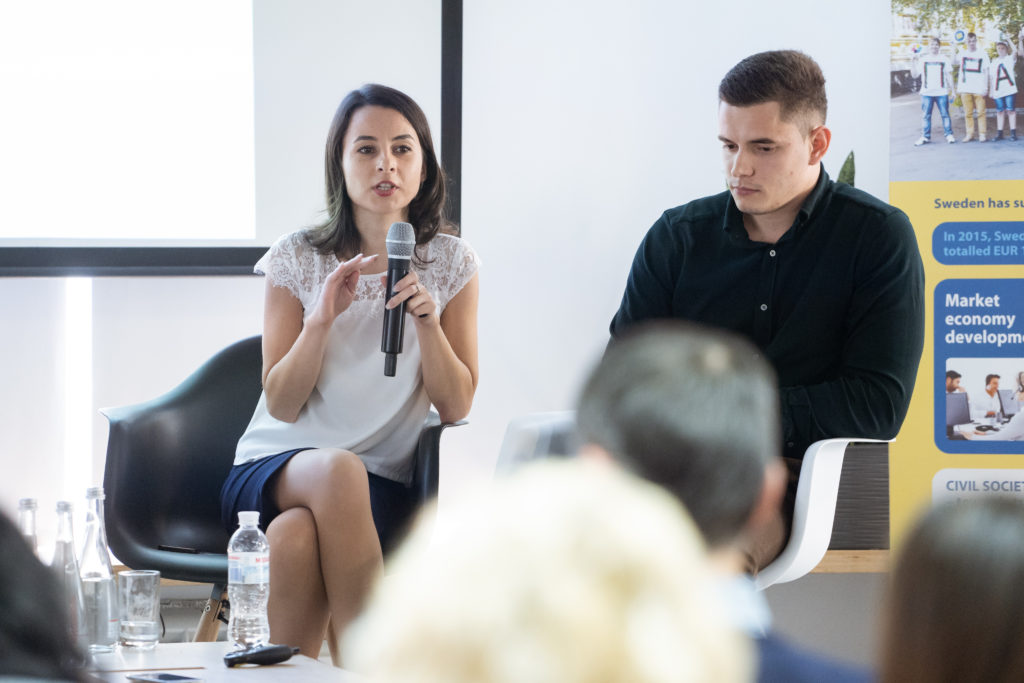 According to Khrystyna Burtnyk, a lawyer at CEDEM and a training lecturer, thanks to the classes, the officials were able to expand their knowledge of access to information and interest them in self-education.
According to Khrystyna Burtnyk, a lawyer at CEDEM and a training lecturer, thanks to the classes, the officials were able to expand their knowledge of access to information and interest them in self-education.
“Usually, people in our trainings discovered something new: either the three-pronged test, or a duty to create a place for the work of those who asked which officials could not be aware of for 7 years of existence of the law. And it’s important that people left the trainings with the understanding that access is not only the answers to requests “, she stressed.
The lawyer noted another positive result: a wave of trainings has now started, which are organized by the officials themselves for their colleagues in order to pass on their knowledge.
Archival reform: how to realize the right of citizens to know
Another area at the intersection with access to information is archives. After all, it is there where many important documents stored.
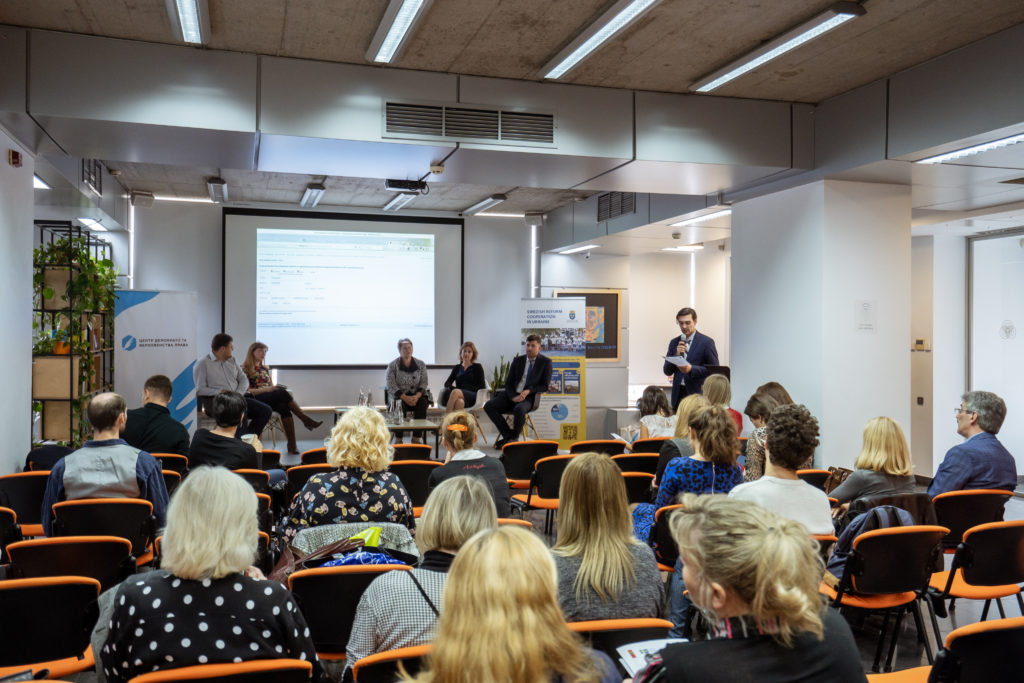 However, this year the Ministry of Justice has changed the Rules for using archival documents, introducing strict restrictions on working with documents.
However, this year the Ministry of Justice has changed the Rules for using archival documents, introducing strict restrictions on working with documents.
“These changes are disastrous. For example, it is forbidden to copy documents larger than A4, although it was introduced only in 1922, documents written in iron gall ink, which were used until the twentieth century, in pencil, watercolor, and the like. In fact, this order makes it impossible to copy archived documents. And it has not been canceled yet,” said Ihor Rozkladai. However, he cited the example of the Polish archives, which are digitized and, consequently, accessible to citizens.
The importance of the archives was emphasized by Olena Betlii, associate history professor of NaUKMA. After all, success in the information war directly depends on a quality historical product.
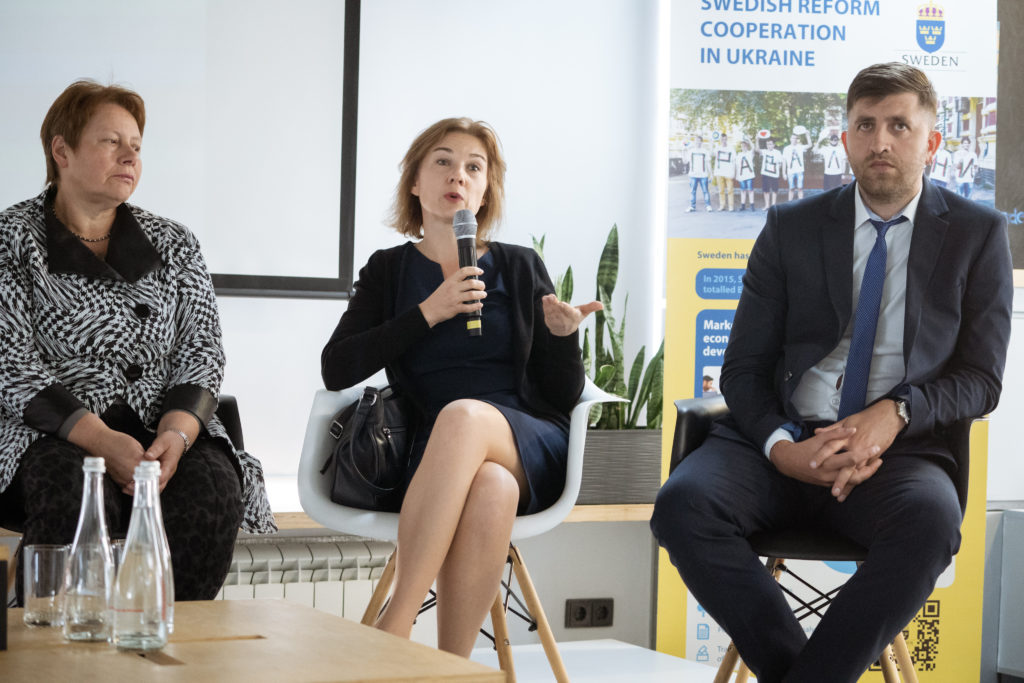 “Fundamental and interesting research could be an argument in discussions with Russia or with Poland. Now there is no solid work, because not every historian is willing to spend time and work in difficult conditions that exist in the archives. This is a question of the right of people to know, on which it depends, whether citizens will be conducted on manipulation,” the researcher comments and actively encourages the public to unite in order to change the situation.
“Fundamental and interesting research could be an argument in discussions with Russia or with Poland. Now there is no solid work, because not every historian is willing to spend time and work in difficult conditions that exist in the archives. This is a question of the right of people to know, on which it depends, whether citizens will be conducted on manipulation,” the researcher comments and actively encourages the public to unite in order to change the situation.
Valentyna Piskun, head of the department of source study of the Modern history of Ukraine at the Institute of Ukrainian Archeography and Source Study of the National Academy of Sciences of Ukraine, also stressed that work in archives is important for historians, because one source often does not give a complete picture of the event, so you need to study maximum documents to understand the context. “Our archives have a shout that they lack the means to fully store their documents, and instead they close to hide their own problems,” she said.
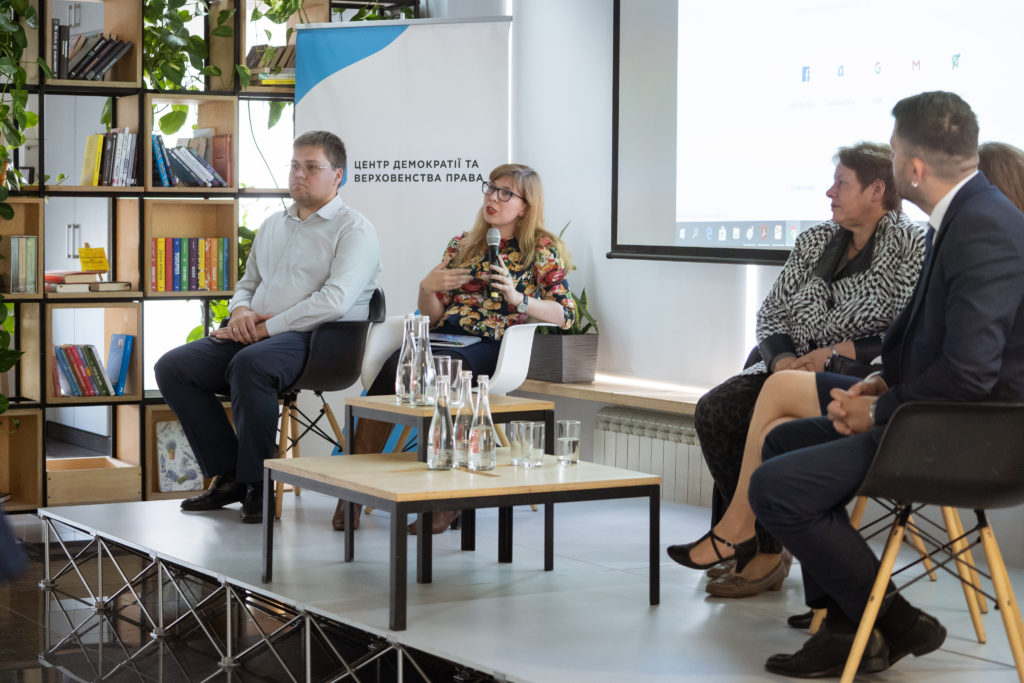 Olha Komarova, a post-graduate student of the Department of archival studies, special historical and legal disciplines of the Kamianets-Podilsk National University named after Ivan Ohienko, who from her own experience told about the threats in the archival sphere, continued the topic. The researcher recalled the fire in the Kamianets-Podilsk archive in 2003, which caused him considerable damage. Actually, underfunding and unreformed archives led to the fact that part of the artifacts was lost in the fire, but the sources are still left unrestored due to lack of funds.
Olha Komarova, a post-graduate student of the Department of archival studies, special historical and legal disciplines of the Kamianets-Podilsk National University named after Ivan Ohienko, who from her own experience told about the threats in the archival sphere, continued the topic. The researcher recalled the fire in the Kamianets-Podilsk archive in 2003, which caused him considerable damage. Actually, underfunding and unreformed archives led to the fact that part of the artifacts was lost in the fire, but the sources are still left unrestored due to lack of funds.
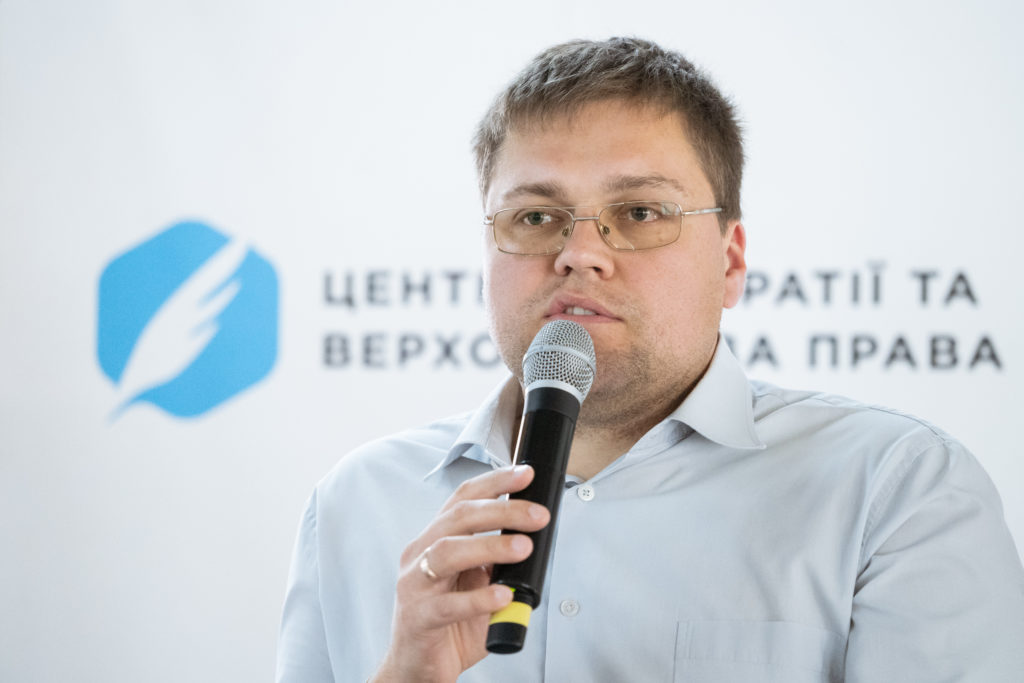 In return, the topic of the speech of Ihor Kulyk, head of the Department for the Institutional Support of the Policy of the National Memory of the UINP, was a successful example of opening archives of repressive bodies for citizens. He noted that positive changes occur when there is public interest in the topic – precisely because of its lack, the archives of the special services in Belarus and Georgia remain closed. Therefore, Ihor Kulyk called on the public to be interested in the archival sphere and to support changes. “Let’s consider access to archives access to information,” he urged.
In return, the topic of the speech of Ihor Kulyk, head of the Department for the Institutional Support of the Policy of the National Memory of the UINP, was a successful example of opening archives of repressive bodies for citizens. He noted that positive changes occur when there is public interest in the topic – precisely because of its lack, the archives of the special services in Belarus and Georgia remain closed. Therefore, Ihor Kulyk called on the public to be interested in the archival sphere and to support changes. “Let’s consider access to archives access to information,” he urged.
Anatolii Khromov, Deputy Director of the State Archive of the Security Service of Ukraine, stated issues in the archive area. Among them are emergency and fire hazardous premises, overflowing storages. He also noted the unhealthy bureaucratic atmosphere, where some of the officials consider the users of the archives as opponents.
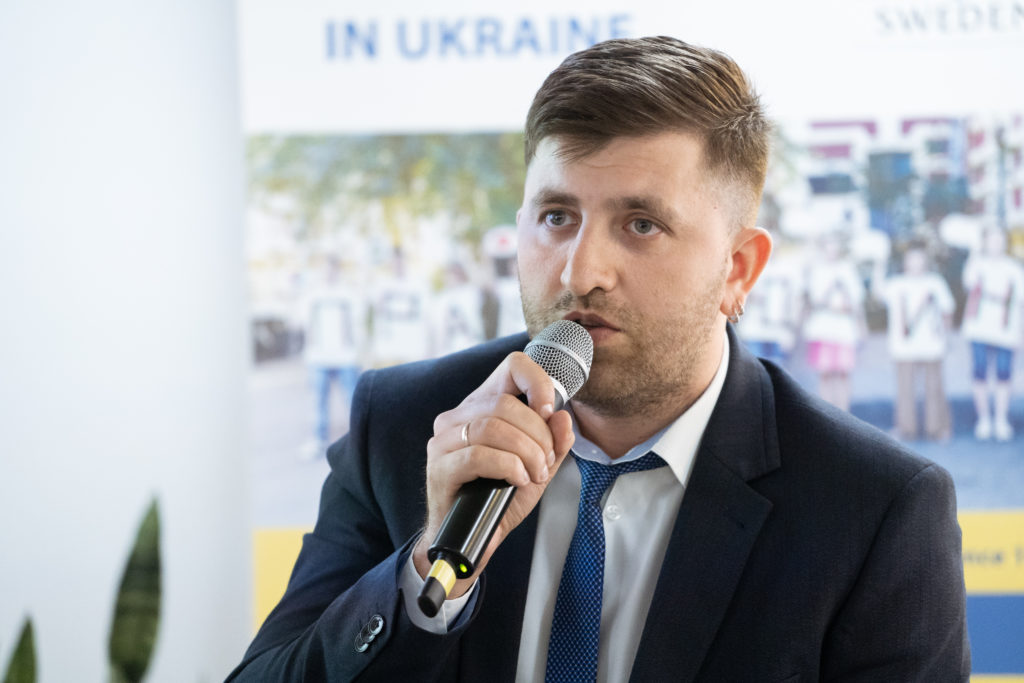 “What changes are needed? First of all, it’s the initiative of archival workers, the informatization of paperwork, innovation — the main thing here is the digitization of archives. Important internationalization is not only the exchange of information, but also foreign investments. We also need integration — the cooperation of the archival industry with society and scientists of other countries”, the researcher said.
“What changes are needed? First of all, it’s the initiative of archival workers, the informatization of paperwork, innovation — the main thing here is the digitization of archives. Important internationalization is not only the exchange of information, but also foreign investments. We also need integration — the cooperation of the archival industry with society and scientists of other countries”, the researcher said.
The last session of the Forum was devoted to the exchange of experience. Activists of the Network of Defenders of the Right to Access Information spoke about the realization of the right to know in the regions and analyzed the situations that arise during their activities.
The project is implemented with the support of Sweden of Sweden and with the support of the United Nations Development Program in Ukraine and the Ministry of Foreign Affairs of Denmark.